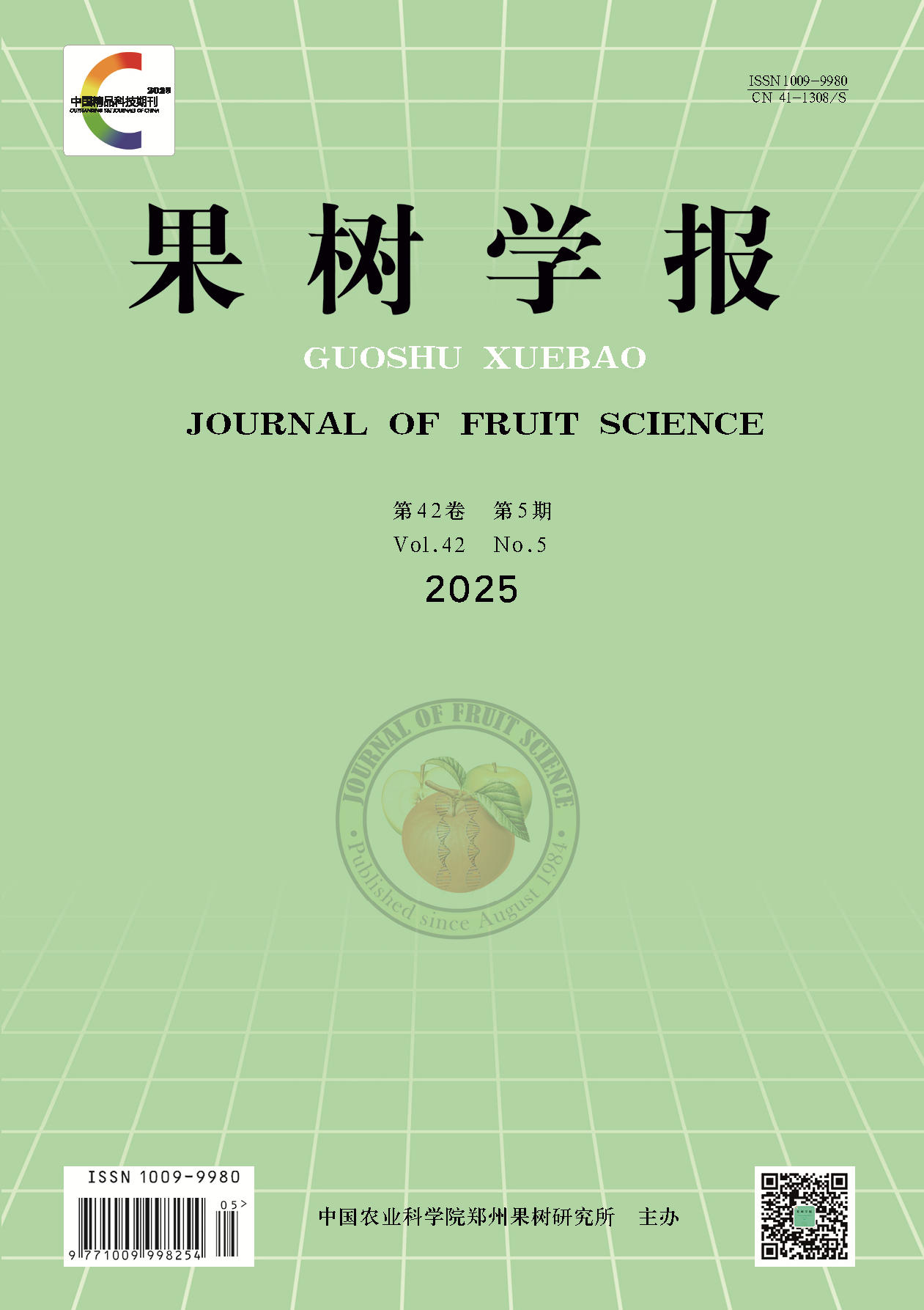单 位:
湖南省农业科学院园艺研究所;湖南农业大学园艺园林学院;国家柑橘改良中心长沙分中心
摘 要:
有机酸是果实主要的品质组分物质之一,直接影响柑橘果实的口感和风味。多数柑橘果实的柠檬酸占总酸含量的70%以上,是主要的有机酸类型。介绍了柑橘果实柠檬酸的代谢途径和国内外柑橘果实柠檬酸研究涉及的果实类型及有机酸特点,综述了参与调控柑橘果实柠檬酸积累的相关基因,指出了柠檬酸合成相关基因CS在不同报道中的功能差异,整理了目前报道的柠檬酸降解相关的Aco、IDH、ACL、GAD、GS基因以及贮藏相关的PH、AHA基因在影响柑橘果实柠檬酸含量中的作用;特别指出了近年来报道的调控柑橘果实柠檬酸积累的相关转录因子研究。柑橘果实柠檬酸积累是一个复杂的过程,受多种因素影响,与其他果实性状研究相比其研究还处于起步阶段。为此,笔者对调控柑橘果实柠檬酸积累的重要基因研究进行了综述,分析了研究现状和存在的不足并展望了今后的研究方向,旨在为柑橘果实柠檬酸代谢研究提供参考。
译 名:
Citrate accumulation in citrus fruit:a molecular perspective
作 者:
LU Xiaopeng;LI Feifei;XIE Shenxi;College of Horticulture and Landscape,Hunan Agricultural University;National Centre for Citrus Improvement;Institute of Horticulture,Hunan Academy of Agricultural Science;
关键词:
Citrus fruit;;Citrate;;Gene
摘 要:
Organic acid is one of the major components in fruit quality,affecting the flavor of citrus fruit directly.Citrate,accounting for more than 70% of total organic acid,is the dominant acid type in most citrus fruits.This paper reviewed the studies on genes involved in citrate accumulation of citrus fruit in past two decades.Citrate is an intermediate of tricarboxylic acid(TCA) cycle which is an important pathway supplying power for organism in both plant and animal.In fruit,citrate was believed to derive from two sources.First,fruit biosynthesizes carbohydrates and confers them into citrate by itself through TCA cycle because fruit skin has both chlorophyll and photosynthesis.Second,citrate biosynthesized in roots or leaves was transported into fruit.Both hypothesis had experimental supports in citrus.Previous studies on citrate accumulation included diverse citrus species,containing lemon,sweet orange,navel orange,Satsuma mandarin and ponkan.Natural citrate difference between citrus cultivars was focused firstly as well as some citrus mutants characterizing specific citrate content.Certainly,citrate differences in fruit induced by treatment or by different developing stage were also chosen for investigation.So far,it is commonly accepted that citrate increased sharply in citrus fruit at early developing stage and then decreased constantly in the following stages.The final citrate content in fruit was determined by many factors,but biosynthesis,degradation,utilization and storage metabolism were focused generally.First,the effect of biosynthesis oncitrate accumulation.Citrate synthase(CS) is the first step for citrate biosynthesis,so the expression of its encoded genes were paid more attention.Some studies through applying CS inhibitor on Satsuma mandarin and tangelo proved that CS activity affect citrate level in citrus fruit;and similar role of CS was obtained by the study in navel orange.However,many reports believed that there was no clear relationship between CS genes expression and citrate accumulation.This result was supported by the CS studies on pumelo,sweet lemon,sour lemon and sweet orange.Therefore,there was no clear conclusion on CS regulating citrate accumulation in citrus fruit.Second,degrading steps influence citrate accumulation in fruit.Unlike the role of biosynthesis step,the genes contributing to citrate degradation,such as Aco and IDH genes,worked well in fruit.That has been proved in different citrus species,including sweet lemon,sour lemon,mandarin,Satsuma mandarin,sweet orange and navel orange.Third,many utilizing citrate metabolisms affect citrate content in fruit.Some studies believed there were other pathways contributing to citrate degradation in citrus fruit except TCA cycle.Glutamate decarboxylase(GAD) catalyzes the biosynthesis ofγ-aminobutyrate(GABA) which needs citrate as a precursor.It has been suggested that GAD genes expression influenced fruit citrate accumulation through GABA shunt.The expression of GAD genes influencing citrate utilization so as to affect its final level was found in both citrate degradation during fruit development and citrate decrease caused by environment factor.The GS genes are involved in biosynthesis of glutamine and other amino acids which also need citrate as precursor.Studies indicated expression of GS genes was correlated with citrate degradation in citrus fruit.ATP-citrate lyase(ACL) catalyzes the conversion of citrate to oxaloacetate and acetyl-Co A in cell cytosol.Fourth,storage function of vacuole is important for citrate accumulation in citrus fruit.It has also been implied that expression of ACL influenced fruit citrate level during fruit ripening as well as citrate changes under drought stress or ABA treatment.H+-ATPase encoded by PH and AHA genes supplied the H+gradient for citrate transporting to vacuole.The expression of these genes was also associated with citrate accumulation in the citrus fruit.Above genes worked in different way so as to affect final citrate level in citrus fruit,but these were not enough to reveal the detail mechanism of citrate accumulation since it is a complex procedure and affected by many factors.Recently,some transcription factors were assessed to regulate citrate accumulation in citrus fruit.Some transcription factors,like ERF,MYB,b HLH,were believed to participate in citrate accumulation.Transient overexpression of Cr MYB73 and Cit ERF13 suggested that they interacted with VAH genes so as to regulate citrate accumulation in vacuole.Yeast assay exposed some b HLH transcription factors interact with the promoter of Cs Aco1,implying their role in citrate degradation.Herein,we summarized the studies on genes involved in citrate accumulation in citrus fruit and analyzed their different roles in citrate biosynthesis,degradation,utilization and storage.Overall,the regulating network of citrate metabolism and the major gene controlling citrate level in citrus fruit were not revealed clearly.Studies on transcription factors which were involved in citrate metabolism mean a novel and further research direction in this field.This review demonstrated the improvements and shortages of citrate study in citrus fruit and suggested the future research priorities.We hope to provide reference for further study and improvement on citrate metabolism of citrus fruit.





